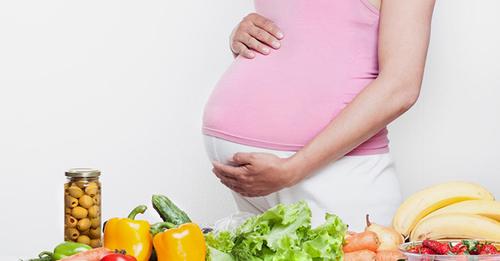The 2nd trimester of pregnancy comprises twelve weeks from week 14th to week 26th. By the end of this trimester, you can expect your baby to grow about 35 cm in length. Eating healthy food is the first condition to ensure the sound development of the baby. Learning the right nutrition and the right amounts of it in this trimester will assist in the healthy growth of your baby. This guide will tell you a list of foods to eat and avoid during this time.
What to eat
Iron: A diet that lacks iron can cause anemia. Iron deficiency can cause postpartum depression and premature birth in the body. Iron assists in the transportation of oxygen throughout the body. Its intake should be proportional to the weight of the baby. On average, the recommended daily dietary intake of iron is anywhere around 27 milligrams (mg).
A few sources that are rich in iron include:
- Lean meat
- Leafy green vegetables
- Cooked seafood
- Nuts
- Beans
- Lentils
- Whole grains foods such as oatmeal, multigrain bread
- Fortified cereals
Vitamin C: Vitamin C helps in the efficient absorption of iron in the body. So, when you are eating more iron, your diet should also include more amount of Vitamin C. Some of the best sources of vitamin C are orange juice, oranges, tomatoes, and strawberries.
Protein: Protein is essential for the sound development of the muscles and bones of the baby. It also helps in the development of the uterus in the mother to be capable to hold the baby efficiently. In 2nd trimester of pregnancy, a woman should aim at consuming 1.52 grams of protein per kilogram of her body weight. It will assist in the sound development and functioning of the tissues and brain of the baby. Some of the good sources of protein include:
- Tofu
- Lean meats
- Chicken
- Nuts
- Eggs
- Raw or cooked fish
- Peas,
- Beans, and
- Lentils
Calcium: Calcium is required for the formation of the teeth and bones of the baby. It also helps in the smooth working of the nerves, circulatory system, and muscles in the body. The recommended intake of calcium during the pregnancy phase is 1,000 mg.
Certain foods that are rich in calcium are:
- Dairy products
- Tofu
- Eggs
- Almonds
- White beans
- Kale, spinach, and broccoli,
- Breakfast cereals
Folate: Folate is one of the B vitamins that prevent congenital heart defects, neural tube defects, and chances of premature labor. A pregnant woman needs to consume around 400 micrograms to 800 micrograms of folic acid every day.
Some of the best sources of folic acid are:
- Black-eyed peas
- Fortified cereals
- Dark green leafy vegetables that include cabbage, collard greens, and spinach,
- Oranges
- Whole grains, like wheat, oats, and rice
Vitamin D: Vitamin D is another essential element that helps in the development of the bones and teeth of a baby. The recommended daily dietary intake of this vitamin is 600 International Units. Sunlight is one of the best natural sources to get vitamin D.
Food sources of vitamin D include:
- Fatty fish, like salmon, mackerel, and fresh tuna
- Beef liver
- Fish liver oils
- Egg yolks
- Cheese
- UV-exposed mushrooms
- Fortified juices
Omega-3 fatty acids: Omega-3 fatty acids aids in the sound functioning of the heart, eyes, brain, central nervous system, and immune system of a person. Omega-3 can even prevent premature delivery and lower the chances of preeclampsia, and postpartum depression. On average, a pregnant woman in her 2nd trimester should consume 1.4 g of omega-3 fatty acids. Some of the best sources of it are:
- Salmon
- Mackerel
- Herring
- Sardines
- Flaxseeds
- Fresh tuna
- Fish oil
- Chia seeds
Foods to avoid
- Avoid soft cheeses that include Brie, feta, and blue cheese
- Avoid eating pre-cooked meats. Also avoid uncooked and raw meat, fish, and eggs due to chances of being contaminated with salmonella, toxoplasmosis, and bacteria.
- Avoid seafood and fish that have risky levels of mercury, such as swordfish, tilefish, king mackerel, and shark. This is because mercury is a poisonous element and also delays the brain development of the baby.
- Unpasteurized form of dairy products should be avoided as it contains listeria and toxoplasmosis in it. They can be very hazardous for the health of your baby.
- All forms of alcohol must be avoided as it can lead to miscarriage, alcohol spectrum disorders, and stillbirth
- Completely avoid or limit the intake of caffeine-infused products as it can lead to constipation. Ensure that its daily intake does not exceed 150mg to 300 mg. Avoid consuming cola drinks, green tea, chocolate, and caffeine-rich medicines.
Conclusion
A balanced, and nutritious diet at the time of pregnancy is important to ensure your fetus gets the required nutrition for its development. It is required that you talk to a doctor to suggest you a proper diet plan that includes all the necessary nutrients in the right amounts.
